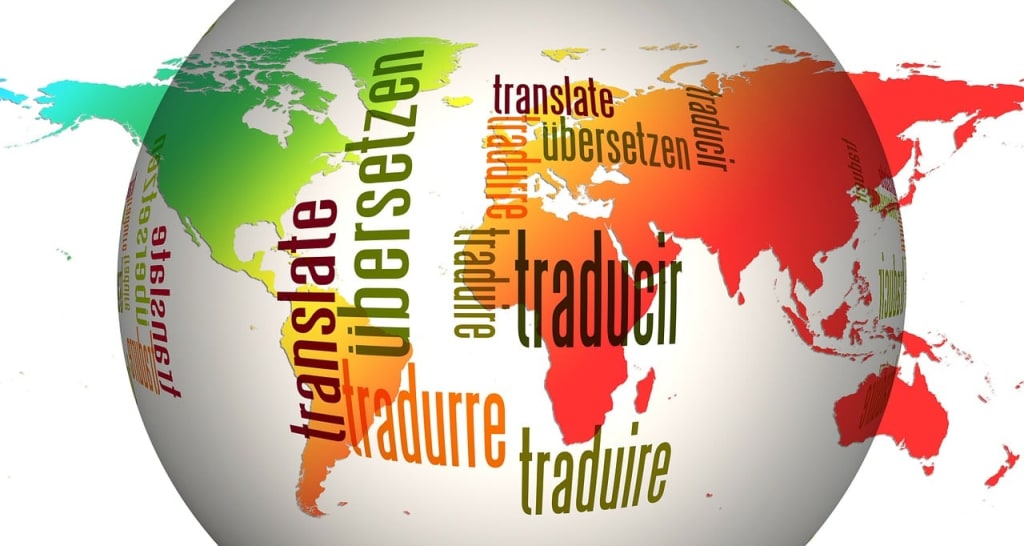The Power of Words in Shaping Thoughts
How the language you speak affects your thoughts

Let's consider an example first. Imagine yourself in the small Australian Aboriginal village of Pormpuraaw, standing next to a six-year-old boy. He points precisely and without hesitation when you ask him to point north, and your compass verifies that he is right. Ask the same question of a group of knowledgeable, seasoned educators now. Not all of them have the solution, and those that do tend to become confused and point in different places before giving up. Why is it that an educated adult in one culture can't do a task that a six-year-old boy in another can complete with ease? The surprise explanation, according to a 2010 Wall Street Journal research by Lera Boroditsky, may be found in the significant impact that our native language has on our mental processes.
Anthropological, psychological, and linguistic studies have addressed a wide range of topics, including the connection between language and understanding. Language is a highly structured system that is collaboratively formed and defined, just like culture. It is common to write off the idea that language could influence cognition as unreasonable and unprovable. This consensus has been challenged by new cognitive science studies, raising the fundamental question of whether language usage affects how each of us creates their own unique reality and worldview.
Take a look at a little passage from the popular children's book, "Humpty Dumpty sat on a wall." The disparities across languages are evident even in this one line. It is necessary to mark the verb for tense while singing "Humpty Dumpty" in English, for example, by using "sat" rather than "sit" to indicate timing. However, in Russian, the word choice discloses the protagonist's gender, whereas in Indonesian, this distinction is meaningless. Turkish requires that the verb include the source of the information. Although speakers of different languages must meet distinct standards for their language, does this suggest that speakers of different languages see their experiences differently?
Imagine that I was going to report that I spotted Uncle Mike on 47th Street. The word that was employed would indicate when the event happened in Mian, the language spoken in Papua New Guinea. The verb wouldn't say whether the event was still going on in Indonesian. Mandarin Chinese would require the speaker to identify the kind of uncle, whereas Russian would disclose the speaker's gender. Certain languages, like Pirahã in the Amazon, actively delete information, like numerals, while other languages add specialized information to words. The fact that the Pirahë had no vocabulary for numbers surprised academics who were assessing their mathematical prowess.
The link between language and cognition has been called into doubt by this linguistic oddity among the Pirahã. Experiments by Peter Gordon and Daniel Everett suggest that the Pirahë's limited language makes it difficult for them to understand concepts related to numbers. The result reached emphasizes the significant role language plays in concept formation by stating that people can only construct thoughts for which they have actual words.
The language of the Pirahã is shaped by their culture and embodies the idea of "Live here and live now". This cultural center restricts abstract ideas and intricate ties to the past, which has an impact on language. On the contrary, the Pormpuraaw language, Kuuk Thaayorre, demonstrates how language can improve cognition. Kuuk Thaayorre uses absolute cardinal directions—North, South, East, and West—instead of relative spatial phrases like left and right, as does English. The remarkable spatial awareness of the community is facilitated by this linguistic characteristic.
Studies also show that language affects how we perceive and comprehend time. Different language speakers arrange temporal progressions in different ways. Hebrew speakers, who write from right to left, arrange them in the opposite order from English speakers, who normally arrange them from left to right. This implies that our perception of time can be influenced by writing direction.
Even more astonishingly, language has the power to affect how someone perceives and perceives an event. Lera Boroditsky uses Dick Cheney's quail-hunting mishap as an example to demonstrate this. Whether Cheney is described as "shot" or Whittington as "got shot," the word choice alters how the incident is perceived and how each person's role is understood.
In summary, the research on linguistic variations in cognition shows that the languages we speak influence the ideas we want to communicate as well as assist us in expressing them. Our languages contain patterns that profoundly affect how we create opinions, understand intricate knowledge systems, and construct reality.
About the Creator
Resian Sankei
Passionate environmentalist, psychology enthusiast, and avid writer on a mission to inspire change and spark curiosity.






Comments
There are no comments for this story
Be the first to respond and start the conversation.